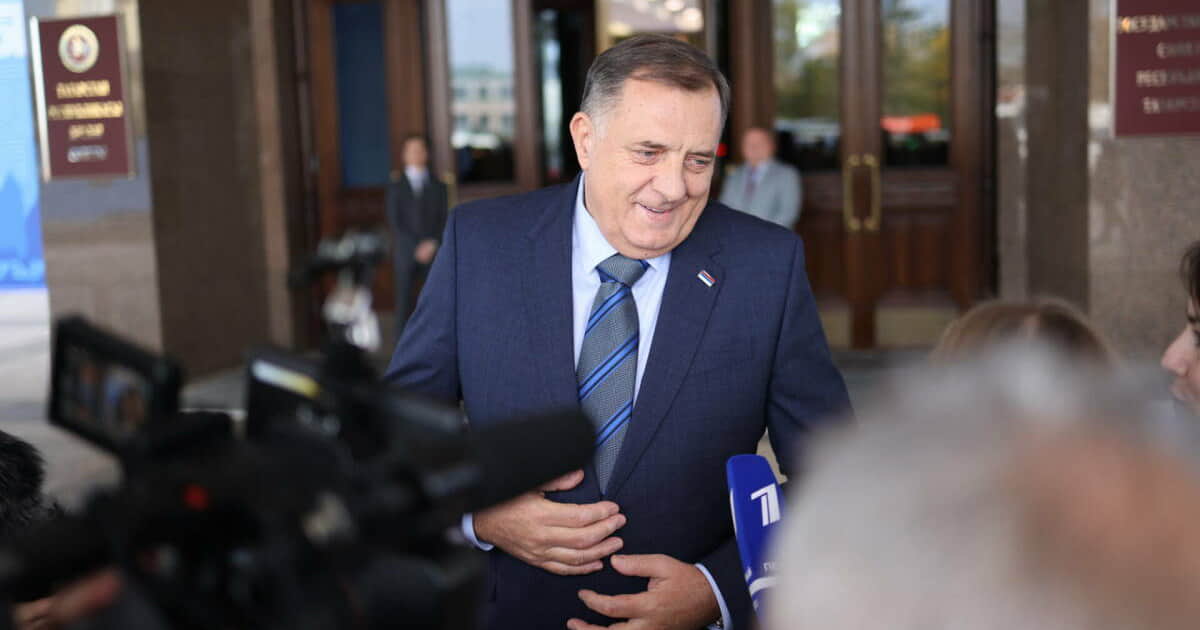How the wanted Balkan separatist Dodik “surfaced” in Moscow and what he is negotiating

A month ago, the President of Republika Srpska, a constituent entity of Bosnia and Herzegovina (BiH), Milorad Dodik, was formally sentenced to one year in prison and banned from holding public office for six years. This court ruling was meant as a warning to the President of Republika Srpska and other separatists, but Milorad Dodik responded by raising the stakes. Following the verdict, he facilitated the adoption of several "laws" by the National Assembly of Republika Srpska, the implementation of which would lead to the disintegration of Bosnia and Herzegovina.
Consequently, the Court of BiH issued an arrest warrant for Dodik and the Speaker of the Assembly, Nenad Stevandic, on charges of "attacking the constitutional order" of the country. However, enforcing this court decision is far from easy. On 1 April, the President of Republika Srpska "surfaced" in Moscow.
Why did this separatist travel to Russia, and what are the chances of his arrest? Read more in the article by Western Balkans expert Volodymyr Tsybulnyk and European Pravda editor Yurii Panchenko - Dodik won't be missed: will the Balkans' chief separatist find refuge in Russia? On 27 March, Interpol's office in Bosnia and Herzegovina issued an internal arrest warrant for Dodik, which was sent to all national Interpol offices.
A request for a "red notice" was submitted to Interpol's General Secretariat, which must approve and publish it on its website to give it legal force. However, there are no guarantees that Interpol will approve the request. Serbia, taking advantage of Dodik's Serbian citizenship, strongly opposes adding him to the international wanted list, calling the case a political persecution.
Russia has made similar statements. As a result, Interpol is in no hurry to make a final decision. Despite the hesitations of Interpol's General Secretariat, even the national arrest warrant has been a significant blow to Dodik and his allies.
Thus, he urgently needed to prove that the warrant changes nothing. Early last week, without waiting for Interpol's decision, the President of Republika Srpska and the Speaker of the National Assembly traveled to Serbia. This move can be seen both as a blatant disregard for the decisions of the Court of Bosnia and Herzegovina and as an attempted escape.
This trip has already raised many questions. First, how did the President and the Speaker of Republika Srpska cross the BiH border despite the warrant for their arrest? Doubts remain about whether those responsible will be identified.
After all, the border with Serbia runs through Republika Srpska itself. It is known that Speaker Nenad Stevandic traveled to Serbia, and there has been no further news about him. Meanwhile, Dodik is trying to attract as much attention as possible.
After meeting with Serbian President Aleksandar Vucic in Belgrade, he traveled to Israel, where he was declared a "persona non grata" and had to leave the country. Dodik then announced that he had returned home, but on the morning of 1 April, he unexpectedly appeared in Moscow. At the beginning of Dodik's "grand tour," there was speculation that the primary goal of his travels was to secure political asylum in case things go south at home.
However, it is important to remember that the Kremlin does not need Dodik for his own sake but rather as a tool to destabilise the Balkans. As long as this possibility remains, Dodik is far more useful to the Kremlin in a Balkan prison than in exile somewhere in the Moscow suburbs. Or perhaps the "red notice" has actually started working?
If you notice an error, select the required text and press Ctrl + Enter to report it to the editors.